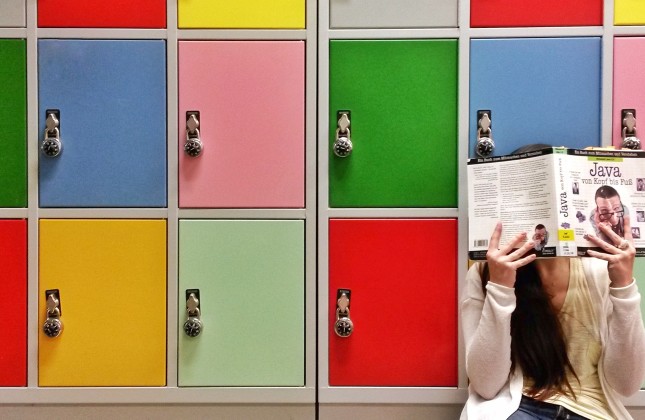
The coronavirus pandemic may be over. The pandemic of apathy plaguing Britain’s classrooms is not.
Expected to fail. That’s what the 10th August 2021 proved to millions of state school students across the country. A day in which success should have been celebrated was instead tainted by the deeply pervasive inequality of Britain’s education system.
The outcome of the results were expected - 70 percent of A-level results at A*/ A for independent school pupils compared to 39 percent for comprehensive pupils - and so too was the brief moment of outrage, the small glimmer of hope that this - this moment - would be the catalyst for change. That never again would the class divide in Britain be so entrenched by the establishments that claim to drive and promote social mobility - a good education being the best hope for a successful life. That never again would the less fortunate in society feel left behind by a government so heavily dominated by the privately educated - nearly two-thirds of the cabinet coming from the most privileged section of society. That this was finally at long last, the turning point for change.
Already, I saw the inequality that I had witnessed in my transition from a state school to a private school student fading into years passed: a hopeful moment of recollection in the hope of a better educational future for Britain’s next generation. That the education system I had been taught to fear in my state school, bent on conformity and silence in the classroom, would become the one I had learnt to value in my private school, where class engagement was an inherent expectation, drowning out the taboo of participation I had so heavily experienced previously.
That even though I had learnt to hold contempt for knowledge, to fear its possession, not willing to distinguish myself in such a way, I was in the process of unlearning. The continual process of separating your present from your past to allow for growth: the art of learning to appreciate the beauty of knowing. That my generation of state school students would be the last to unlearn teaching.
Only 5 weeks have passed since such a glimmer of hope and already the desire for change has been relegated to fringe Twitter accounts that only the most passionate follow.
It is ironic, in an age such as our own, where we claim to have progressed so much in terms of gender and race relations, that we have left education behind. Virginia Woolf’s esteemed essay ‘A Room of One’s Own’ explores the question of Shakespeare’s sister, reaching the conclusion that had she existed she would never have been able to succeed in the same way as her brother, even if they both possessed the same natural talent.
Though this perhaps seems far-removed from our society - an age passed, as it were - it is perhaps a most appropriate anecdote for the divide within our education system. Say one were to select two students, both of similar ability yet one with the fortune of attending a top private school with the other consigned to their local comprehensive, it is likely that the former pupil will be able to thrive in a way that the other cannot.
Nearly 10 times more likely to attend elite universities than their state school counterpart, the private school to top job pipeline manifests itself through extensive school alumni networks and access to Oxbridge with over-representation in Britain’s top jobs - 65 percent of senior judges being from private schools, for example - highlighting the success of such a path. In stark contrast, the more disadvantaged student is heavily limited by his working class background: his chance of social mobility into an elite occupation standing at 3 percent with his success diminished by the fact he will go on to earn, on average, 16 percent less than his colleagues from more affluent backgrounds.
Complemented by the innate self-confidence, resilience and toughness fostered in private school children that allows them to thrive ‘in the fluid, ever-changing and let-go world of the 21st century’, the quality of life that the state school student manages to achieve must undoubtedly be lower than their opposite.
Yet, despite such findings, class remains a deeply taboo subject in British society - the creation of a parentocracy sparking such little concern that the question must be asked: have we become desensitised to such an issue? The disease of apathy plaguing our classrooms simply ignored, either from willing privileged ignorance or sheer lack of understanding.
If there is no guilt or anger, there must be privilege because how can one rationalise such a system? Why would parents pay for such an education if private schools were not vehicles of privilege?
Education should not be a good able to be bought, a commodity to be bartered or bargained for and while success should be able to afford you an improved quality of life, it should not gift the children of the wealthy a better start in life.
The solution, though arguably radical, is clear: the integration of private schools into the state sector in an attempt to create a freer, fairer and more accessible education system. One in which a child is not penalised for where they came from but who is instead rewarded by their own merit. Precedent for abolition can be found in Finland, where full school integration has resulted in a country that since 2009 has consistently ranked at the top for each subject in the Programme for International Student Assessment whilst still maintaining high global rankings in happiness, quality of life and equality. Compared to the UK, where children are deemed the unhappiest in Europe, there is clearly a necessity for a seismic shift in how we treat our children.
Reform must occur and that stems from the culture in our classrooms. Changing the system will not happen overnight, it will only occur if we are willing and open to start conversations about a new direction to take Britain’s education system in.
Will we continue to divide children among lines drawn by their parent’s wealth? Or, will we accept that, maybe, something needs to change? And that the change might shift the core of the British establishment forever.

About the author
Jessica Willock is a sixth form student from Greater Manchester. She is interested in advocating for equality both within her local area and internationally, hoping that one day she can travel the world as a diplomat in order to promote human rights. She also has a passion for sport, loving to run for her local club as well as supporting Manchester City and playing football.
This article is part of our Voices of the Economy series. The project brings together the economic experiences and opinions of people from a range of different backgrounds and showcases voices which are not heard as often when we talk about the economy. To find out more and share your own story click here.



